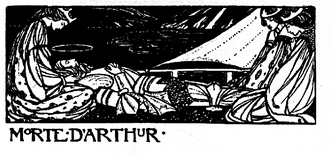I recently learned of Roland Barthes’ essay, “The Death of the Author.” Originally written in French, Wikipedia warns it’s not to be confused with Le Morte d’Arthur. Or is it? Barthes’ idea is that to truly appreciate a piece of literature you must dissociate it from its author. I’m of conflicted feelings about this. To truly understand an author you should read everything they’ve written. Perhaps that’s a task best left up to biographers and historians. I have trouble, especially when an author’s name is well known, and perhaps the very reason I purchased a book, of leaving the author out of the equation. On the other hand, sometimes I’ll read literature merely for the experience, and the author is often someone I know nothing about. If the book moves me, however, the first thing I start to research is the author.
Said author may not give the ultimate meaning to the story, but I believe it’s a more subtle interaction than “La mort de l’auteur” might suggest. It’s not unusual to enter into parasocial relationships with an author. In fact, I suspect it’s quite common. After reading a Neil Gaiman novel I sometimes think we’d recognize each other across a crowded room. Compelling writing will do that to you. And from a writer’s perspective, what you write does contain part of you. Captured in literary form. As much as—no, more than a photograph does. An author does not determine the final meaning of what s/he writes, but they mean something by writing it in the first place.
When writing fiction I often find myself exploring themes that require other stories I’ve written to give them fuller texture. Perhaps this is why finding publishers is so difficult. I’ve had people tell me that they understand my nonfiction better after they get to know me. There’s a natural progression here, in this age of endemic loneliness: a story, blog post, or book catches your attention. You want to know more and what do you do? Await the death of the author or reach out to the writer? I’ve done both, and I generally find that reaching out to an author can be satisfying. It depends, of course. Some don’t like to be disturbed by those they don’t know, their parasocial paramours. Of course, there is a way to get to know an author, even remotely. Read what they write. It won’t give you the whole story, of course, but the more of their work you read the better you’ll get to know them. Thus I’m conflicted about “La mort de l’auteur.”

